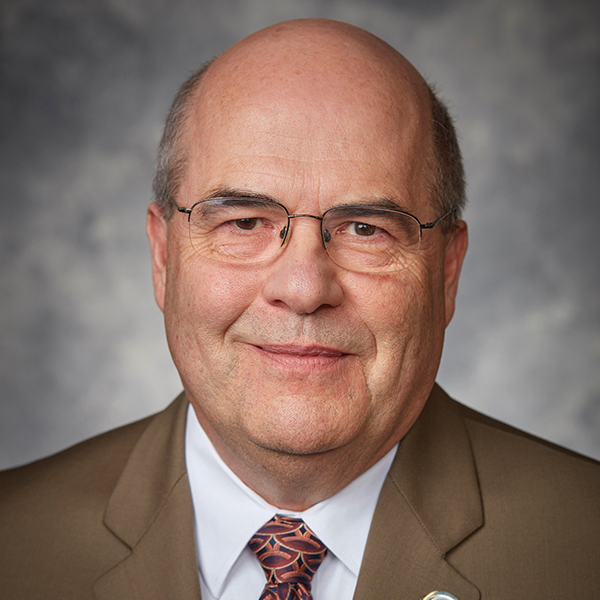Dr. Edward J. Harpham
- Professor Emeritus of Political Science
- Former Associate Provost and Dean of the Hobson Wildenthal Honors College
- Mary McDermott Cook Chair in the Hobson Wildenthal Honors College (Former)

An anonymous contribution created the Mary McDermott Cook Chair in the Hobson Wildenthal Honors College in 2017. Dr. Edward J. Harpham was the inaugural holder.
“Great universities are committed to excellence and the life of the mind. The Hobson Wildenthal Honors College was created to cultivate excellence across a wide range of activities inside and outside the University and to help students pursue the life of the mind.“
Dr. Edward J. Harpham joined The University of Texas at Dallas in 1981 as an assistant professor of government and political economy. In 1998 he was appointed the first director of the Collegium V Honors Program, and by 2001, he was a professor of political science. In 2014 he was named inaugural dean of the Honors College, a post he held until 2021. He retired in January 2023.
Harpham is credited with helping to build the University’s honors education offerings, including the Collegium V program, which he directed for 16 years; the Eugene McDermott Scholars Program; the National Merit Scholars Program; the Terry Scholarship Program; the Texas Legislative Internship Program; and seven more programs dedicated to promoting excellence in undergraduate education.
The Hobson Wildenthal Honors College, renamed in 2017 at the request of Margaret McDermott – who established a $10 million endowment for undergraduate research – offers world-class academic and cultural programs that attract top students from around the world, who in turn become leaders in their fields after graduation.
In addition to guiding the Honors College, Harpham served as associate dean of undergraduate education from 1998 to 2010 and as associate provost from 2008 to 2021. He held the Mary McDermott Cook Chair in the Hobson Wildenthal Honors College until 2021.
As a professor, he taught undergraduate honors courses in political theory, American government and Texas politics, as well as three honors reading tutorials on medicine, politics and philosophy for pre-med honors students. He also taught graduate courses in political science.
Harpham’s research explored how economic ideas shaped the understanding of politics and public policy in the West. He also studied the relationship between technological transformations and political change in American political history. More recently, he has investigated the theories of the passions found in modern liberal thought, particularly those developed in the 17th, 18th and 19th centuries. He has a special interest in Texas politics and government, and has written or edited several best-selling textbooks on the subjects, including two in their seventh editions.
In addition to writing or editing 10 books, he has contributed more than 27 articles or chapters to various academic books, as well as 29 articles for other publications. He has written 30 book reviews and delivered dozens of lectures worldwide. His work is cited in numerous academic publications in the fields of political theory, American and Texas government, and public policy.
In 1994 Harpham delivered UT Dallas’ Andrew R. Cecil Lecture, and in 2006 he was the Polykarp Kusch Lecturer. He led three student exchange programs between the Honors College and the Chien-Shiung Wu Honors College at Southeast University in Nanjing, China, between 2017 and 2019.
Harpham received the 1996-97 Chancellor’s Council Outstanding Teaching Award, as well as many other honors that acknowledge his contributions to the University and to the School of Economic, Political and Policy Sciences over the last four decades.
He served on the Administrative Committee for UT Dallas’ Center for Asian Studies and as a faculty advisor and board member for the UT System’s Archer Center in Washington, D.C. He was a founding charter member of the UTD chapter of Phi Kappa Phi. He is past president of the Southwestern Political Science Association.
Harpham graduated Phi Beta Kappa and Phi Kappa Phi with a Bachelor of Arts in political science from Pennsylvania State University and earned both a Master of Arts and a PhD in government from Cornell University.